Table of Contents
- What Is Powder Salt? (Quick Answer)
- Powder Salt vs. Regular Salt: Key Differences
- 5 Most Useful Culinary Applications
- 3 Simple Beauty Uses You Can Try Today
- How to Store Powder Salt Properly
- Easy Homemade Powder Salt Recipe
- Sodium Safety Tips for Daily Use
- When to Choose Powder Salt Over Regular Salt
- Should You Use Powder Salt? Final Thoughts
- Frequently Asked Questions
What Is Powder Salt? (Quick Answer)
Powder salt is ultra-fine salt ground into a fine powder that dissolves instantly in liquids and mixes evenly into dry ingredients. Unlike regular salt crystals that can create uneven seasoning, powder salt provides consistent flavor distribution in recipes. It's especially useful for baking, beverages, and beauty products where regular salt's larger crystals would be noticeable or wouldn't dissolve properly.
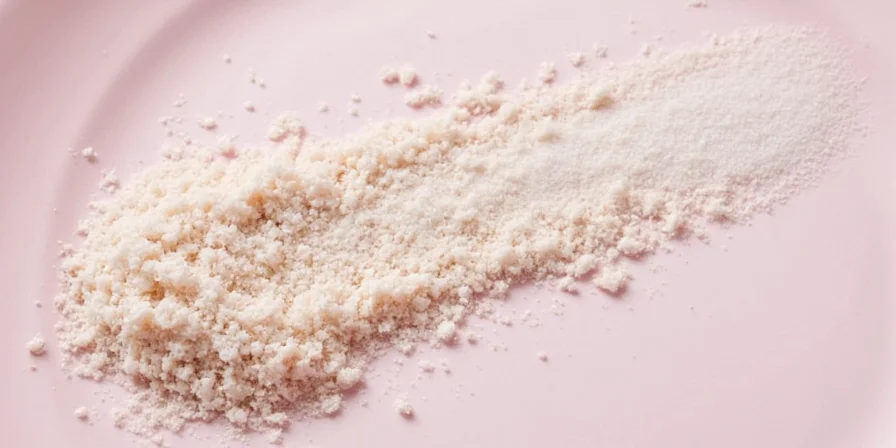
Powder Salt vs. Regular Salt: Key Differences
Most people don't realize how much the texture of salt affects their cooking. Powder salt isn't just finely ground regular salt—it's processed differently to prevent clumping while maintaining immediate solubility. The main practical difference you'll notice is that powder salt dissolves completely in cold liquids and mixes evenly into dry ingredients without creating salty spots.
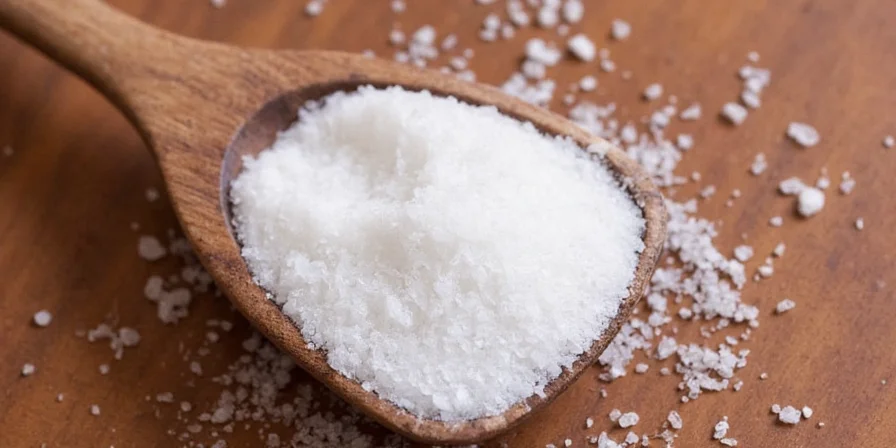
5 Most Useful Culinary Applications
- Better Baking Results: Mix powder salt directly with flour for even distribution in breads and pastries—no more salty pockets.
- Perfect Salad Dressings: Dissolves instantly in vinaigrettes without shaking, creating smooth emulsions that don't separate.
- Enhanced Chocolate: A light dusting on dark chocolate brings out flavor notes without crunchy texture.
- Improved Meat Rubs: Sticks better to meat surfaces than regular salt, creating more consistent seasoning.
- Cocktail Rimming: Creates a smoother, more even salt rim on margarita glasses without large crystals.
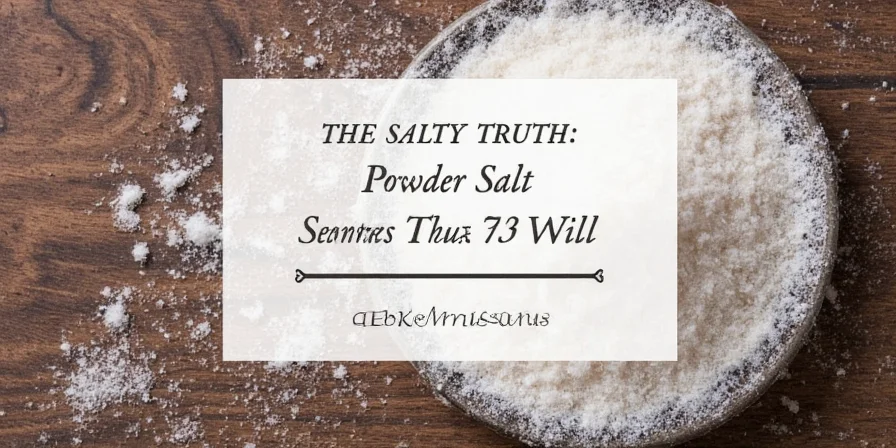
3 Simple Beauty Uses You Can Try Today
You don't need expensive products—powder salt's fine texture makes it ideal for basic beauty treatments:
- Gentle Face Scrub: Mix 1 teaspoon powder salt with 2 teaspoons coconut oil for a non-abrasive exfoliant.
- Oil-Absorbing Dry Shampoo: Sprinkle small amounts at roots to absorb excess oil between washes.
- Foot Soak Booster: Adds gentle exfoliation to warm foot baths without scratching sensitive skin.
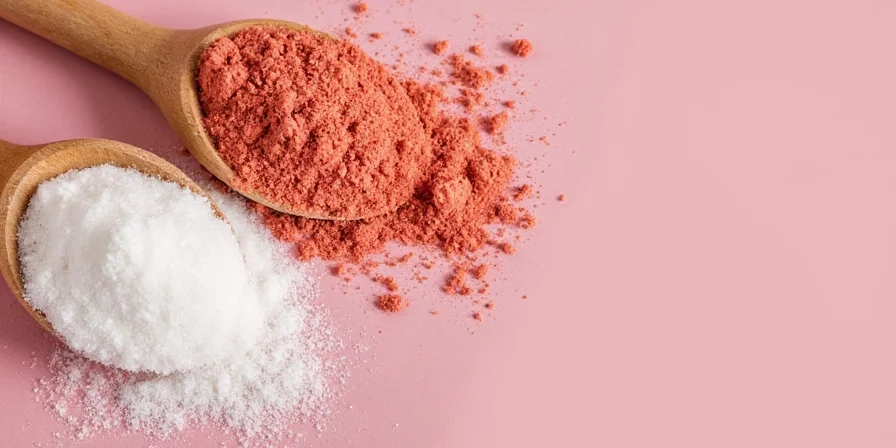
How to Store Powder Salt Properly
Powder salt absorbs moisture more easily than regular salt, so proper storage is crucial:
- Keep in an airtight container with a silica gel packet
- Store in a cool, dark place away from humidity
- If it clumps, break it up with a fork and add a pinch of cornstarch
- Use within 6 months for best results (vs. regular salt's indefinite shelf life)
- Never store in the refrigerator where moisture is high
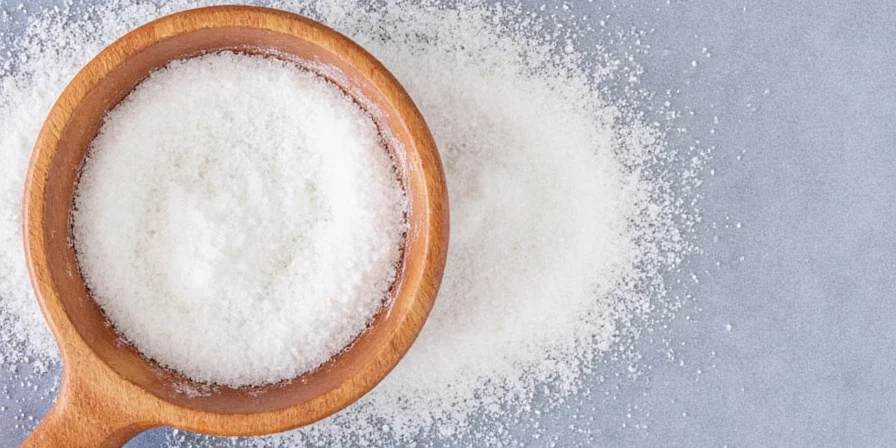
Easy Homemade Powder Salt Recipe
You don't need special equipment to make powder salt at home:
- Spread regular table salt in a thin layer on a baking sheet
- Bake at the lowest oven setting for 15 minutes to remove moisture
- Let cool completely, then grind in a spice grinder or coffee grinder
- Sift through a fine mesh strainer to remove larger particles
- Add 1/4 teaspoon cornstarch per cup of powder salt to prevent clumping
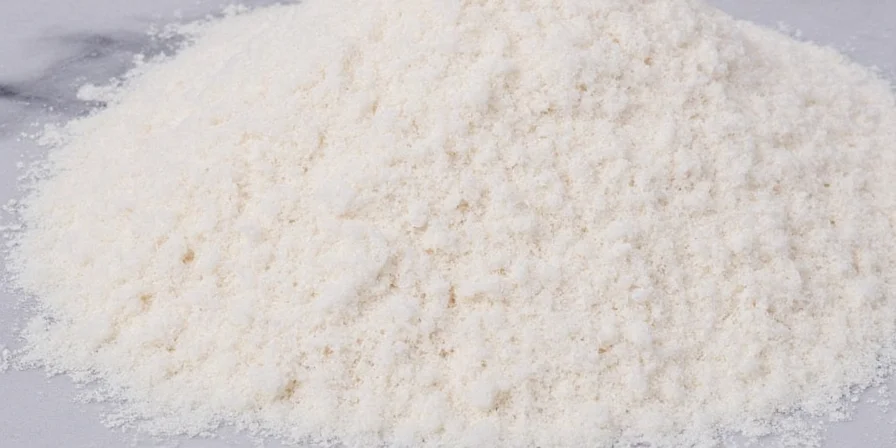
Sodium Safety Tips for Daily Use
While powder salt offers culinary benefits, remember these important safety guidelines:
- Use 20% less powder salt than regular salt due to better distribution
- Measure carefully—don't pour directly from the container
- Rinse canned beans to reduce sodium content by up to 40%
- Children need significantly less salt than adults (ages 4-8 need only 1,200mg sodium daily)
- People with high blood pressure should limit sodium to 1,500mg daily
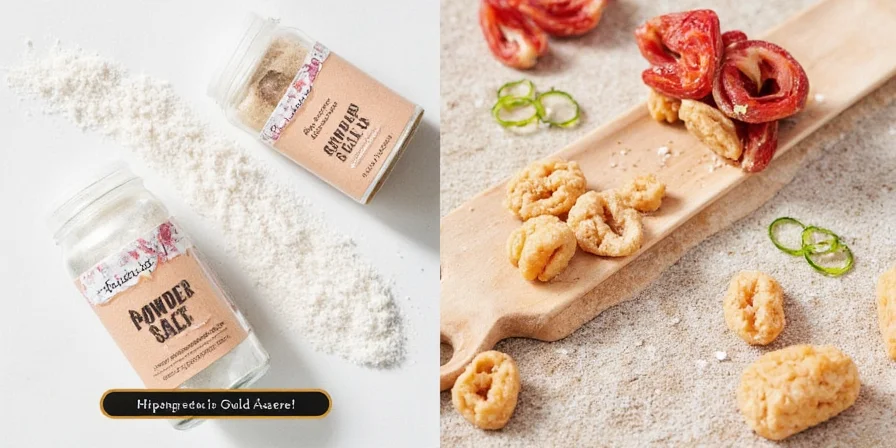
| Feature | Powder Salt | Regular Table Salt |
|---|---|---|
| Dissolves in cold liquids | Yes, instantly | No, takes time |
| Mixes evenly in dry ingredients | Yes, no clumps | No, creates salty spots |
| Texture in finished dish | Undetectable | Noticeable crunch |
| Best for baking | Ideal | Less effective |
| Shelf life | 6-12 months | Indefinite |
Should You Use Powder Salt? Final Thoughts
For most home cooks, powder salt isn't essential but can be helpful for specific applications where even seasoning matters most. You'll get the most value from powder salt when baking, making dressings, or creating beauty products. For everyday cooking, regular salt works fine, but having a small container of powder salt for specialty uses can improve your results. The key is understanding when its unique properties provide real benefits versus when regular salt works just as well.
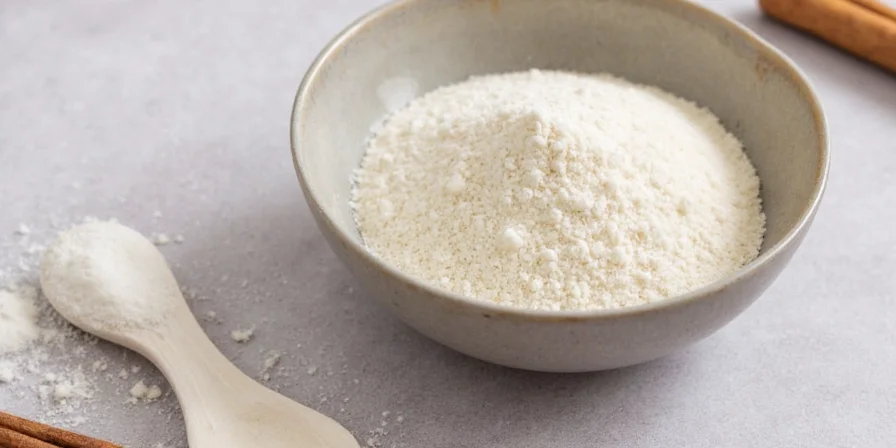
Frequently Asked Questions
Can powder salt replace regular salt in all recipes?
Yes, but use 20% less powder salt than regular salt. Since it distributes more evenly, you need less to achieve the same level of seasoning. This is especially important in baking where uneven salt distribution can affect results.
Why does powder salt clump faster than regular salt?
Powder salt has more surface area exposed to moisture, making it prone to clumping. To prevent this, store it with a silica gel packet and add a small amount of cornstarch (about 1/4 teaspoon per cup of powder salt). Don't use rice grains as some suggest—they can introduce starch that affects your recipes.
Is powder salt safe for facial scrubs?
Yes, when properly prepared. Mix 1 part powder salt with 2-3 parts oil for a gentle facial scrub that won't scratch your skin. Avoid using regular salt crystals on your face as they're too harsh. Limit use to once a week for best results.
How does powder salt improve baking?
It mixes evenly with dry ingredients, preventing salty pockets that can kill yeast or create uneven flavor. In baked goods like bread and pastries, this results in more consistent texture and flavor throughout the finished product.
Can I make powder salt without special equipment?
Yes! Simply spread regular salt on a baking sheet and bake at the lowest temperature for 15 minutes to remove moisture. After cooling, grind it in a spice grinder (or even a clean coffee grinder) and sift to remove larger particles. Add a pinch of cornstarch to prevent clumping.

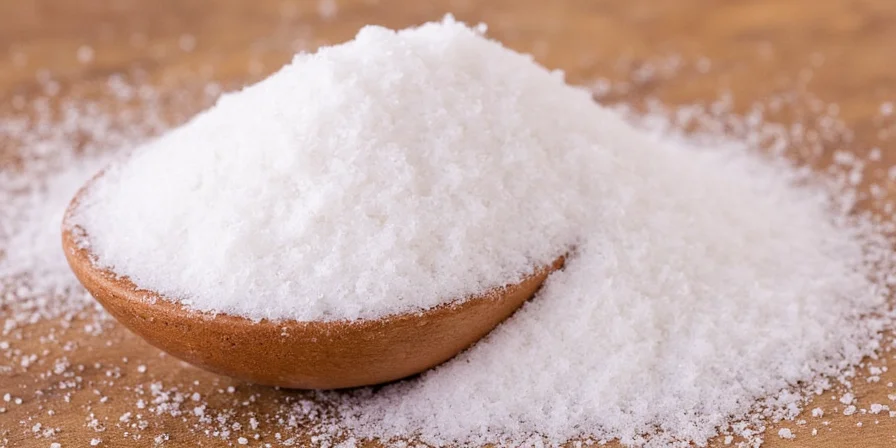









 浙公网安备
33010002000092号
浙公网安备
33010002000092号 浙B2-20120091-4
浙B2-20120091-4